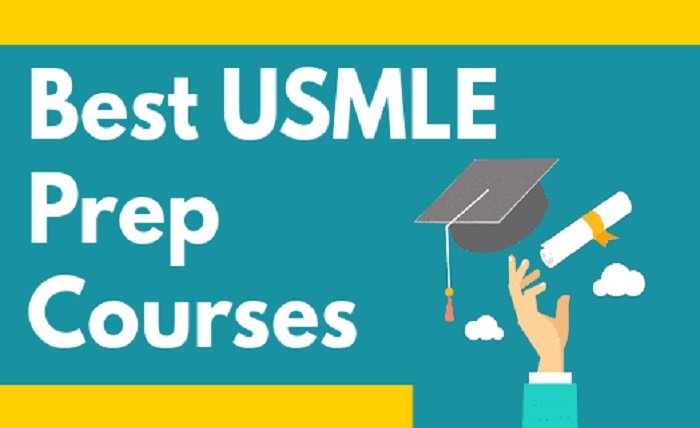The Ultimate Guide to Choosing a USMLE Prep Course

Preparing for the USMLE examinations is a rigorous endeavor that demands careful planning and informed decision-making, particularly when selecting the most suitable preparation course. Here’s an extensive guide to help navigate through this critical phase effectively:
Understanding the Structure and Requirements of the USMLE Examinations
The USMLE is structured into three progressive steps designed to assess a physician’s proficiency in applying medical knowledge across various contexts—from foundational sciences to clinical practice and patient interaction skills. Each step has specific objectives and content areas, highlighting the importance of aligning your preparation with these exam components and timelines. Understanding these foundational elements is crucial as you embark on your preparation journey. Step 1 focuses on core scientific principles, requiring a solid grasp of foundational sciences like anatomy, physiology, and biochemistry. Step 2 encompasses both Clinical Knowledge (CK) and Clinical Skills (CS), evaluating your ability to diagnose and manage patient cases while effectively communicating with patients. Step 3 tests your overall readiness for independent medical practice, integrating biomedical and clinical science knowledge.
Evaluating Content Coverage and Relevance
When choosing a USMLE preparation course, prioritizing comprehensive coverage of content is essential. Seek courses that not only adhere strictly to the official USMLE Content Outlines but also integrate the latest updates in medical practices and guidelines. This ensures thorough preparation to tackle the evolving nature of medical knowledge tested in the exams, thereby enhancing readiness to achieve a competitive score.
A robust understanding and mastery of these topics are fundamental to succeeding in the USMLE exams. Look for prep courses that not only cover the breadth of required material but also provide depth in high-yield topics frequently tested.
Assessing Teaching Methods and Learning Resources
USMLE prep courses employ diverse teaching methodologies, ranging from traditional lectures to interactive simulations and multimedia resources. It’s crucial to evaluate which teaching approach aligns best with your learning style and preferences. Courses offering a blend of these methods typically deliver a more engaging and effective learning experience, facilitating better comprehension and retention of complex medical concepts.
Interactive learning tools such as virtual patient encounters, case simulations, and adaptive learning platforms can enhance your understanding and application of clinical scenarios.
Emphasizing Faculty Expertise and Support Systems
The expertise and qualifications of instructors play a pivotal role in shaping your preparation journey. Look for courses that feature experienced faculty members with robust backgrounds in medical education and proven expertise in USMLE preparation. Additionally, consider the availability of comprehensive support systems, including access to mentors, academic advisors, and peer support networks. These resources provide valuable guidance and assistance throughout your preparation, ensuring you remain on track to achieve your desired exam outcomes. Faculty engagement and accessibility are critical factors in maximizing your learning experience. Seek courses where instructors are readily available to address questions and provide personalized feedback on practice exams and clinical case discussions.
Prioritizing Flexibility and Accessibility
Flexibility in study options is crucial, particularly if you have other academic or professional commitments. Seek USMLE preparation courses offering flexible study schedules and accessibility to course materials through multiple platforms, including user-friendly mobile options. This flexibility enables efficient and effective study management, accommodating personal schedules and location preferences while maintaining high-quality preparation standards. Balancing exam preparation with other responsibilities requires adaptable study plans that allow you to pace your learning according to individual progress and comfort levels.
Considering Reputation, Reviews, and Success Rates
Researching the reputation and reviews of USMLE preparation courses is essential in evaluating their effectiveness and suitability for your needs. Delve into student testimonials, success rates, and independent reviews to gauge the course’s capacity to deliver comprehensive exam preparation and support. Courses with a strong reputation for facilitating successful exam outcomes are likely to provide a superior learning experience and effective strategies for USMLE preparation. Look beyond promotional materials and delve into the experiences of past students to gain insights into the course’s strengths and areas for improvement. Peer-reviewed recommendations and endorsements from medical professionals can also offer valuable perspectives on the course’s credibility and impact on exam performance.
Conclusion
Selecting the right USMLE preparation course is a pivotal decision that demands thorough consideration of various factors, including exam structure, content coverage, teaching methodologies, faculty expertise, flexibility, and reputation. By meticulously assessing these aspects and aligning them with your individual preferences and study habits, you can confidently choose a preparation course that maximizes your chances of success in the USMLE examinations. Effective preparation and strategic planning are essential steps toward achieving your professional aspirations and advancing your medical career in the United States.





